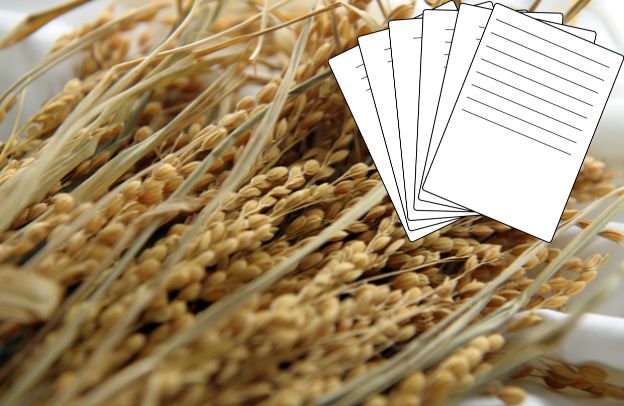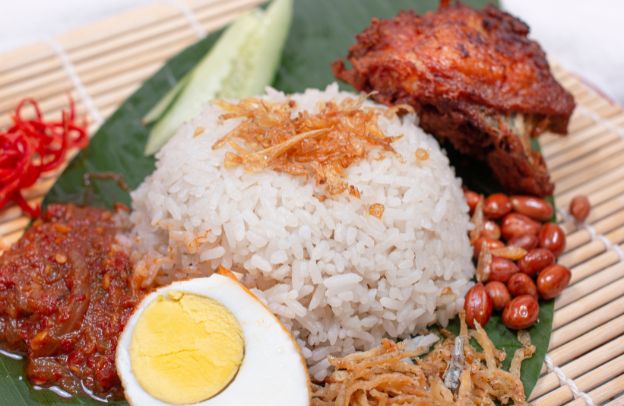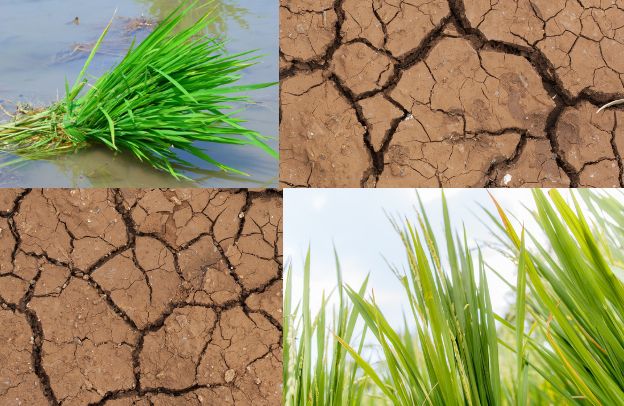The Seed That Grows Together: Unlocking Africa’s Rice Potential with Diaspora Collaboration

You’ve probably heard it before: Africa has the potential to feed the world. But, the potential is only as good as what you do with it. Take rice, for instance. Across Africa, this humble grain feeds millions, yet the continent continues to import over 40% of its rice to meet demand, costing nearly $4 billion each year African diaspora entrepreneurs, stand at a unique crossroads. You have the tools, network, and global perspective to change this narrative. The question is, how can you and the collective power of the diaspora—unlock Africa’s massive rice potential while creating business opportunities?
Want to learn more about storytelling? Start by downloading the first chapter of The Storytelling Mastery.
Why Rice Matters: Food Security and Economic Stability
Rice isn’t just a crop. It’s a lifeline. In many African countries, rice provides 25% of the caloric intake for millions. Nigeria, for instance, consumes about 7 million metric tons annually, with a demand that keeps rising due to population growth and urbanization. As a diaspora entrepreneur, the significance of this staple goes beyond profit; it is about feeding communities, building resilience, and creating pathways out of poverty for farmers.
The report ”Africa – Regional Overview of Food Security and Nutrition 2023” by the Food and Agriculture Organization underscores a food crisis of unprecedented scale in Africa. Millions face worsening hunger, driven by a combination of conflicts, climate variability, economic challenges, the residual effects of COVID-19, and the global repercussions of the war in Ukraine.
These shocks have also exacerbated social and gender inequalities, with women and girls disproportionately affected.
Despite various efforts across the continent, Africa remains off track to meet the food security and nutrition goals outlined in Sustainable Development Goal 2 (Zero Hunger by 2030) and the Malabo Declaration’s targets of ending hunger and malnutrition by 2025.
The statistics are stark: in 2022, approximately 282 million Africans—20% of the population—were undernourished, marking an increase of 57 million since the pandemic began. Additionally, around 868 million people experienced moderate or severe food insecurity, with 342 million classified as severely food insecure.
This edition of the report not only analyzes trends in undernourishment, food insecurity, and malnutrition but also, for the first time, assesses the cost and affordability of a healthy diet. These indicators highlight the economic barriers many face in accessing nutritious food.
Given the deteriorating food security situation and slow progress towards global nutrition targets, the report calls for urgent and intensified efforts. Challenges such as slowed economic growth, soaring food price inflation, and rising borrowing costs since 2022 make the path to eradicating hunger and malnutrition by 2030 even steeper, emphasizing the need for immediate, coordinated action.
Challenges on the Ground: The Rocky Terrain of Rice Production
Before venturing into Africa’s rice sector, it is vital to understand the key challenges small and medium-scale farmers face:
- Land and Water Access: Farmers often work on small, leased plots and rely on unpredictable rainfall due to water scarcity worsened by climate change.
- Climate and Environmental Challenges: Erratic weather, droughts, floods, and soil degradation significantly impact rice yields.
- Pests and Limited Technology: Farmers lack access to pest-resistant seeds and modern agricultural tools, leaving crops vulnerable to diseases and pests like rice blast.
- Infrastructure and Market Access: Poor roads, inadequate storage, and transportation issues lead to post-harvest losses of up to 40%.
- Global Competition: High logistics costs, tariffs, and limited bargaining power make it hard for African farmers to compete internationally.
Addressing these barriers through innovation, better infrastructure, and sustainable practices can unlock significant potential in Africa’s rice industry.
The article “The Economic Impacts of Climate Change on Agriculture in Africa” of ResearchGate highlights the severe challenges climate change poses to Africa, a continent already vulnerable due to its reliance on natural resources and rain-fed agriculture.
Despite contributing minimally to global carbon emissions, Africa is projected to face disproportionate and adverse socioeconomic consequences, exacerbated by its status as one of the hottest regions on Earth.
The study examines the economic impacts of climate change on African agriculture, revealing that the continent will bear some of the most significant global losses, including reduced economic growth and welfare. Regional analyses indicate that Southern Africa will be the hardest hit, followed by the rest of sub-Saharan Africa, North Africa, and East Africa.
To address these challenges, the article emphasizes the urgent need for adaptation strategies. These include developing temperature-sensitive crop varieties, diversifying production systems and livelihoods, adopting sustainable agricultural intensification, and expanding irrigation systems.
Additionally, overcoming institutional barriers such as inadequate infrastructure, market inefficiencies, lack of credit access, and the absence of crop insurance will be critical.
In the long term, the report advocates for a strategic shift away from agriculture toward industrialization and service-based economies to build resilience against climate-induced disruptions.
This comprehensive approach underscores the importance of both immediate and long-term solutions to safeguard Africa’s agricultural and economic future.
Strategies for Overcoming Rice Production Challenges
Rice production faces a range of challenges, including climate change, water scarcity, soil degradation, and pest management. However, solutions are available and accessible to farmers who are willing to adapt.
By adopting sustainable farming practices such as water-efficient irrigation techniques, crop rotation, and the use of resilient rice varieties, producers can mitigate the impacts of these obstacles.
Additionally, integrating technology for precision farming and pest control can enhance yields while reducing environmental impact. With the right knowledge, tools, and support, overcoming these challenges is not only possible but also essential for ensuring long-term success and food security. It’s important also to consider the following:
- Invest in Modern Infrastructure – Build or support the establishment of rice mills, drying facilities, and proper storage units to reduce post-harvest losses. Partner with governments to advocate for infrastructure improvements—better roads mean faster access to markets.
- Provide Financial Solutions – Collaborate with microfinance institutions to create loan products tailored for rice farmers. Affordable credit allows them to invest in farm improvements, purchase equipment, and hire labor during peak seasons.
Continuous Learning: The Foundation of Agribusiness Success
Stepping into Africa’s rice industry is more than a business move; it’s a commitment to lifelong learning. Agribusiness is rapidly evolving, and staying ahead requires sharpening your skills in marketing, finance, and operations. Here’s why these matters:
- Adapt to Market Changes: Consumer tastes, global trade dynamics, and technology shift constantly. By investing in continuous learning through platforms like AClasses Academy, you’ll stay at the forefront of market trends and opportunities.
- Master Storytelling for Effective Marketing: A well-told story can transform your brand. Consumers crave connection, authenticity, and purpose. When your agribusiness narrative highlights the impact you’re making on communities and food security, you attract loyal customers and partners.
- Strengthen Financial Management Skills: Agribusinesses thrive when backed by strong financial planning and strategy. Developing a solid understanding of finance, from budgeting and cash flow management to investment planning, helps you make the most of your resources and scale effectively.
Staying committed to continuous learning is not just about keeping pace, but it is about setting the pace and becoming a driving force in Africa’s rice industry.
See also The Continuous Learning Edge: How Creative Entrepreneurs Can Thrive in a Rapidly Evolving Market
Collaborating for a Brighter Future
There’s strength in numbers. As an African diaspora entrepreneur, your power lies in your ability to connect and collaborate. Across the globe, the diaspora holds an estimated $48 billion in spending power.
Imagine channeling even this towards agricultural initiatives, creating jobs, boosting food security, and transforming communities. That’s a real impact.
- Form Strategic Partnerships: Connect with local NGOs, regional bodies, and fellow entrepreneurs. Collaboration will amplify your efforts and drive sustainable change.
- Support Farmer Cooperatives: By pooling resources, cooperatives can negotiate better prices, access markets, and leverage economies of scale. Join forces to help formalize and empower these groups.
- Advocate for Policy Change: Push for policies that protect small farmers, promote sustainable practices, and create enabling environments for agribusinesses to thrive.
The Bottom Line
Rice, at first glance, might seem small. But for millions, it’s everything. You have the power to transform Africa’s rice industry, one plot, one community, and one story at a time.
The challenges are real, but so are the opportunities—and with collaboration, continuous learning, and strategic action, you can leave a legacy of resilience, food security, and economic empowerment across the continent.
By aligning with Africa’s farmers, leveraging your networks, and mastering the art of storytelling, you can bring about a revolution that feeds millions, inspires global admiration, and builds thriving agribusinesses. Now, isn’t that a story worth telling?
Want to learn more about storytelling? Start by downloading the first chapter of The Storytelling Mastery.





